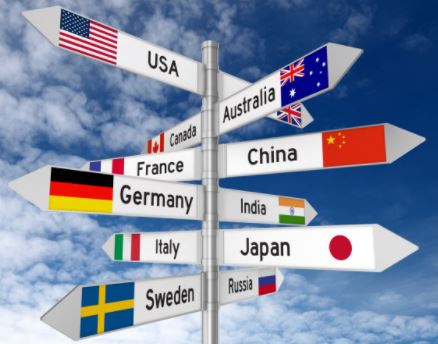
Preface
In the last election debate of the Rooty Hill RSL club, both leaders were asked about foreign investment in Australian agricultural land. Former Prime Minister Kevin Rudd said that he is “not as free as Abbott’s market”. When he owns agricultural land, he prefers joint ventures between foreign companies and Australian companies.
Kevin Rudd also issued the above statement, indicating that other countries are also worried about foreign ownership of agricultural land.

Is the prime minister right?

According to international standards, Australia’s supervision of foreign investment is not strict.
In the continuous process from prohibition to promotion (for example, through subsidies or preferential tax arrangements), Australia tends to impose minimal restrictions on foreign investment practices. All foreign government investment proposals and private investment proposals worth more than A$248 million must be notified to the Foreign Investment Review Committee of the Ministry of Finance. Investments from the United States and New Zealand are treated more generously, with a higher threshold, reaching $1.078 billion. The investment proposal will be reviewed according to the specific circumstances and adopt the open national interest test standards that can be considered.
The stated criteria for agricultural land include access to land and water, productivity and safety of agricultural production, biodiversity and employment. Since almost all applications have been approved, this test is obviously weak, including approximately A$55 billion in investments in agriculture and mining between 2011 and 2012. Foreign investments below the threshold will not be reviewed, and the company may strategically keep the proposal below the threshold.

Formal review process

Therefore, it seems unlikely that a formal review process will restrict foreign investment. But this needs to be seen in context. Approximately 99% of companies that own agricultural land are wholly Australian owned (these companies own 89% of Australia’s agricultural land). However, according to the Australian Bureau of Agriculture and Resource Economics and Science (ABARES), [foreign ownership is rising] Comparing the rules between countries is difficult, because countries have different regulatory methods. Many countries (including the United States and Canada) have more restrictions at the regional or provincial level than at the national level. In some countries, the rules may seem strict on paper, but they are rarely monitored or enforced. In terms of foreign investment, there are differences between many countries/regions. For example, EU countries intend to allow other EU countries to invest on the same basis as domestic investment, while foreign investment from non-EU countries may be more restricted.
To further complicate the issue, the degree of policy and regulatory attention may depend on the existing degree of foreign ownership, the proportion of agricultural land, and the economic dependence on agricultural and mining production and exports. Regulatory agencies in developing countries are often weak or lacking, which affects their ability to resolve market failures in this area. With these warnings in mind, foreign investment in all 34 developed countries (and 10 non-OECD member states) that are signatories to the OECD’s “national treatment” principle is more restricted than domestic investment. This means that foreign companies should receive more treatment than domestic companies. Of these 44 countries, at least 15 have specific regulations on foreign investment in rural land. This shows that we have got rid of the “national treatment” initiative, which was originally designed to release international capital flows since the global financial crisis.

judgment

In general, many countries protect their “core assets” at least to the same or greater extent than Australia, so Kevin Rudd is roughly correct. This is especially true in countries with comparable economic levels, especially in countries with large numbers of land resources and rural sectors. Some other countries are moving towards such protection.

